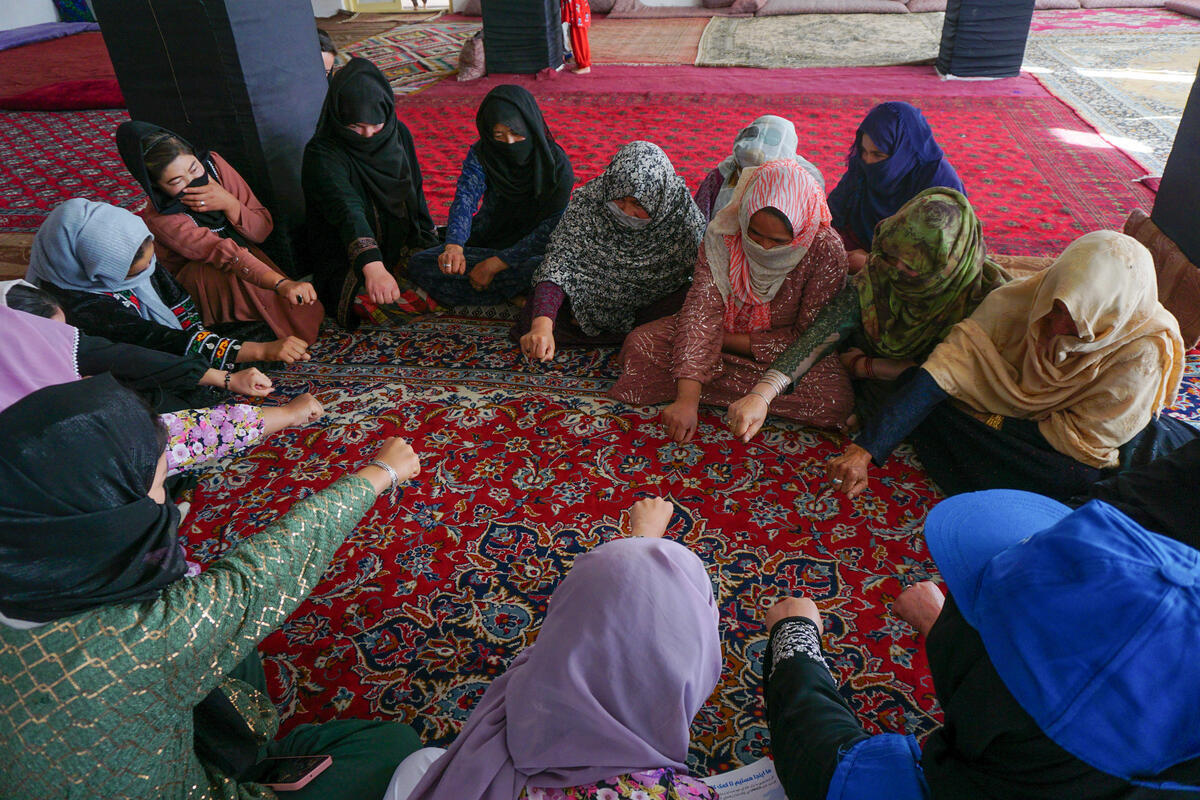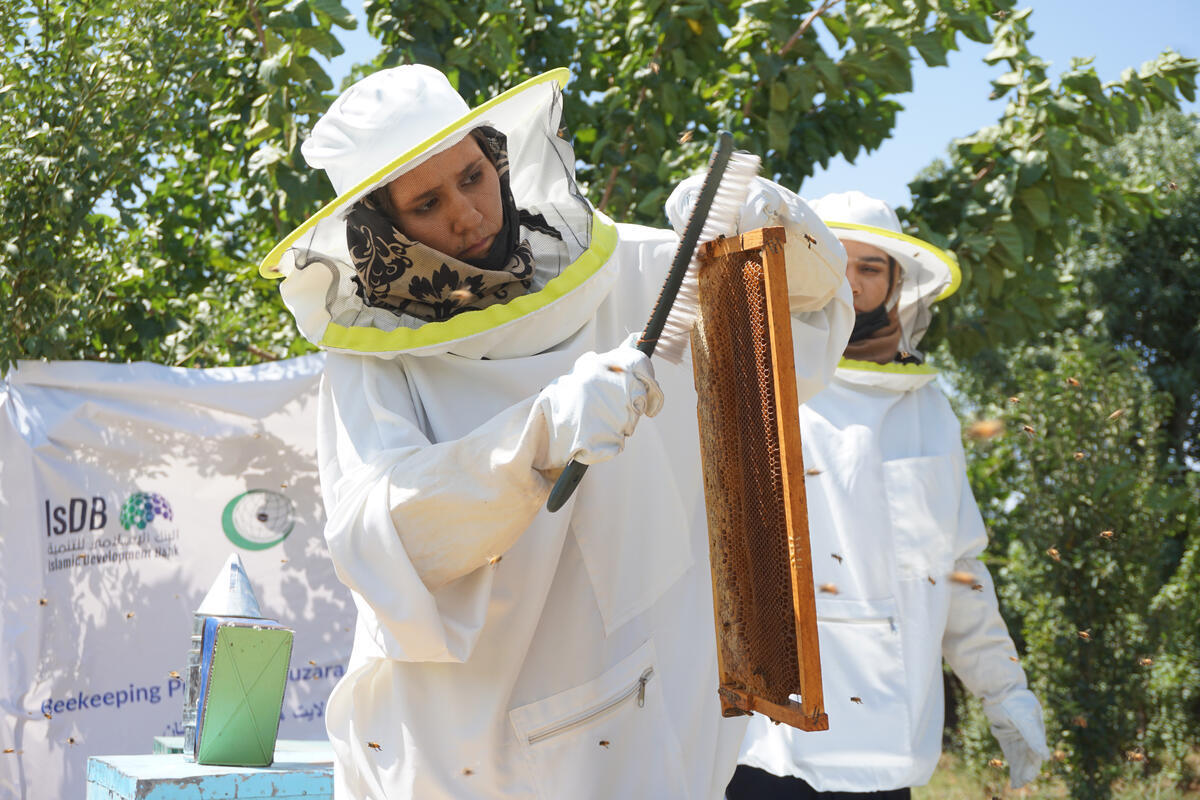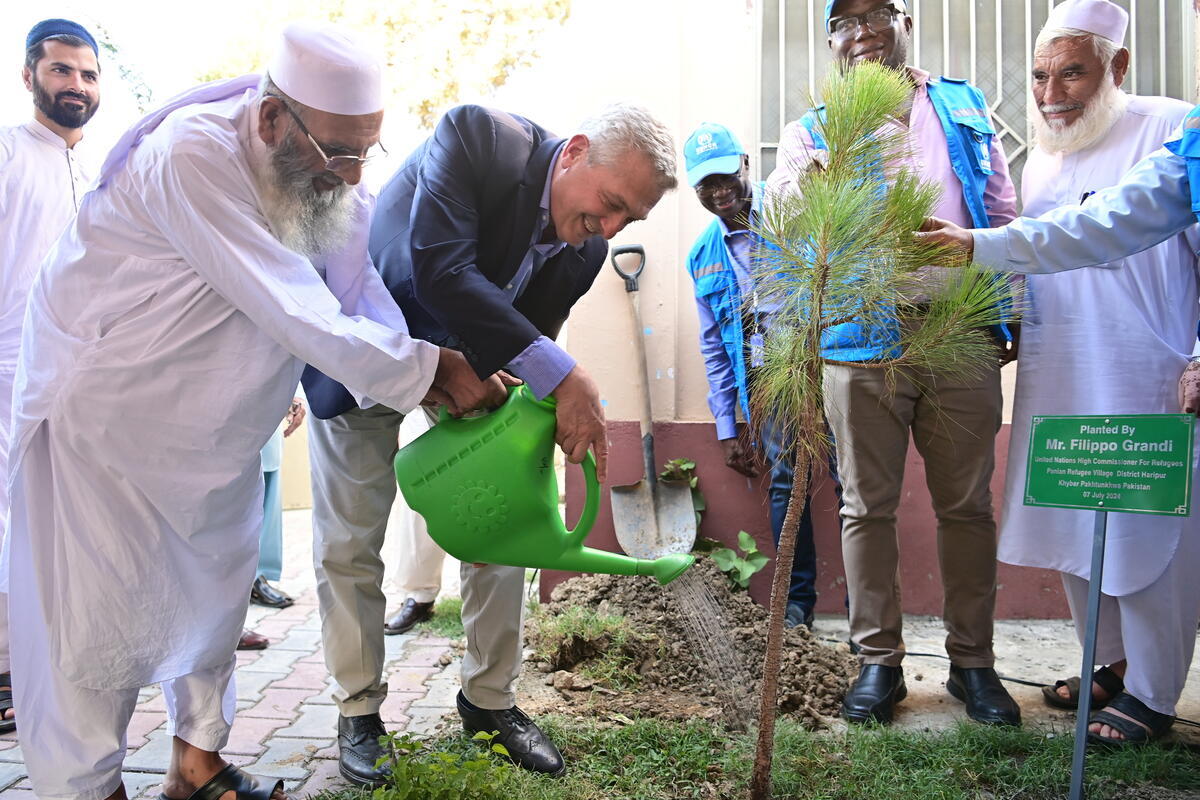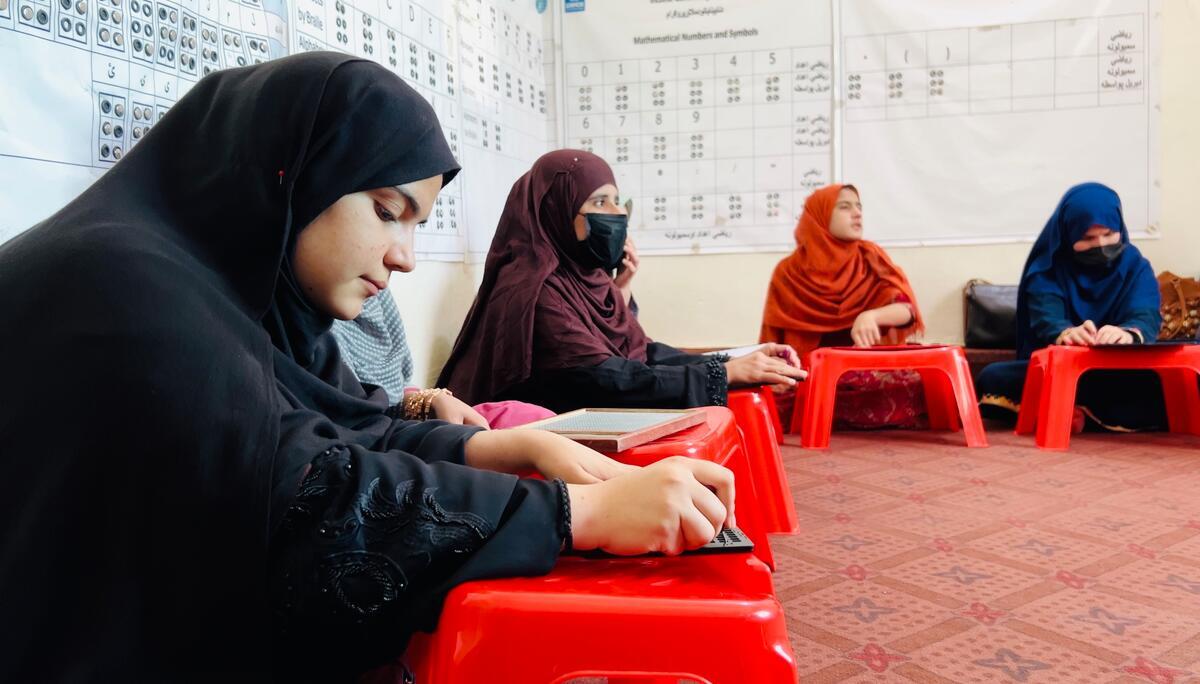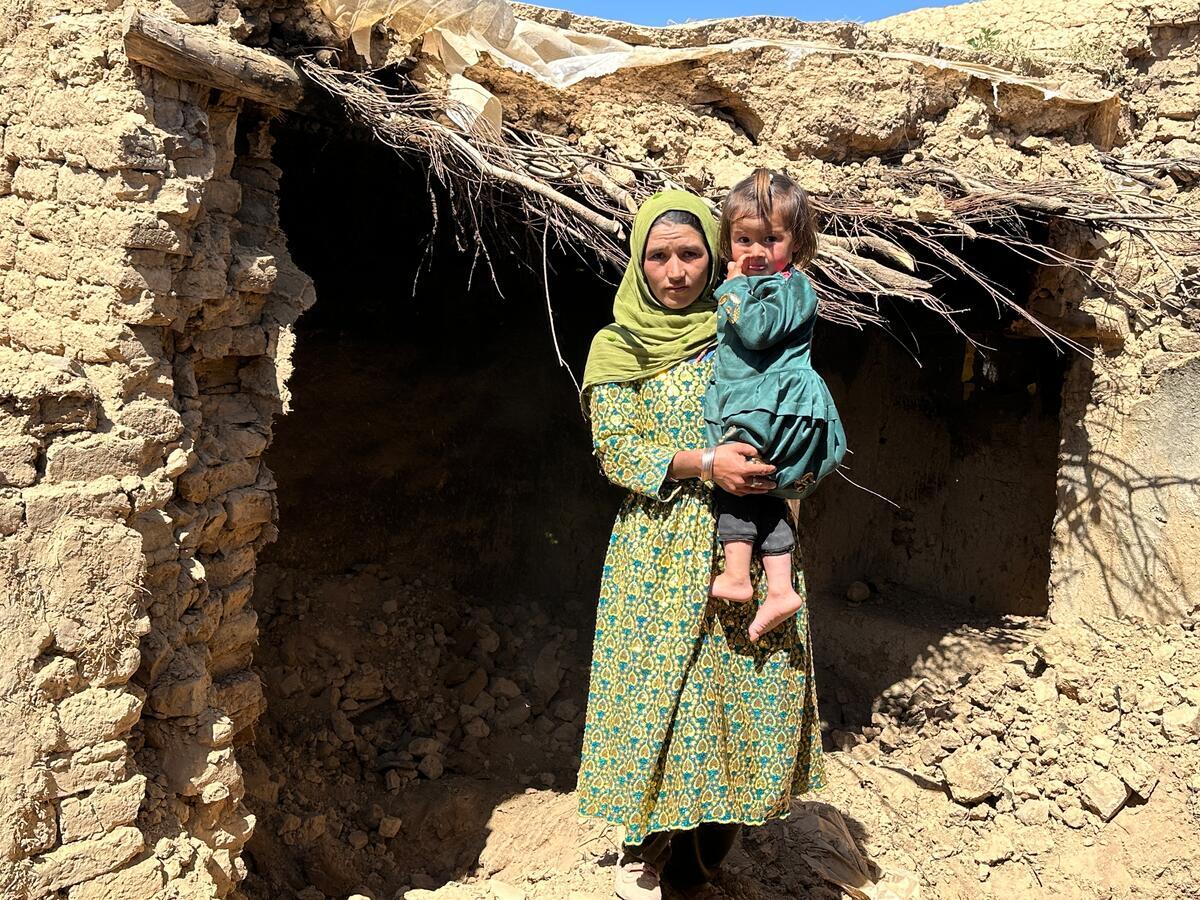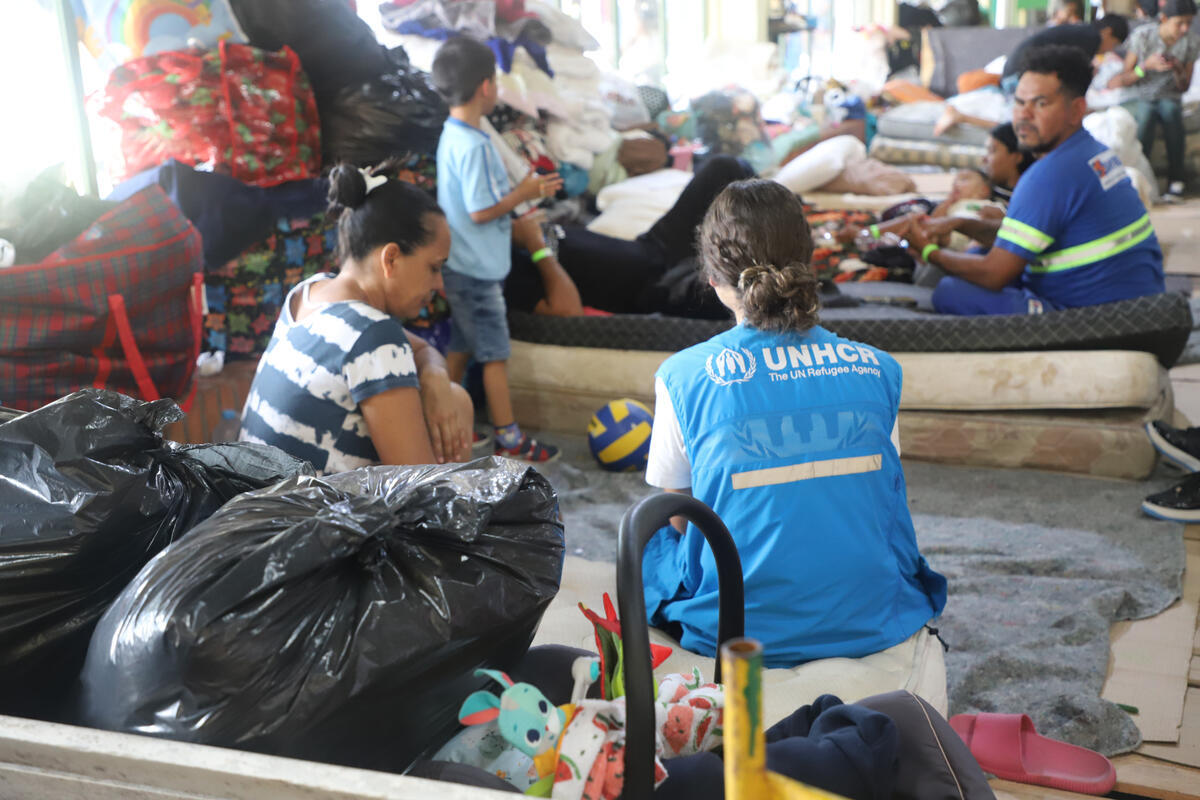Afghan returnees still in limbo after two harsh winters
Afghan returnees still in limbo after two harsh winters

GARDEZ, Afghanistan, April 23 (UNHCR) - "We had never seen such a hard life," said Ashaq Sultan as he scrunched his sun-burnt face and wrung his henna-red hands. "It was snowing and we were sleeping in the open. Some of the children died."
The 45-year-old Afghan was speaking not of his 25 years as a refugee in Pakistan, but of his return to Afghanistan in the autumn of 2005, after the Pakistan government closed all refugee camps in the Federally Administered Tribal Areas (FATA) for security reasons.
"They announced the camp closure and we had to decide within 15 days if we wanted to repatriate or relocate in Pakistan. We thought that instead of starting life in another camp, we might as well return. We were also told that we would get land in Afghanistan, so I came back to Paktya."
Between June and September 2005, more than 102,000 Afghans returned from the FATA camps to south-eastern Afghanistan. Many of them went back to their areas of origin further afield, but the majority stayed in their native provinces of Paktya and Khost. They were home but internally displaced as they had no land in their villages. In the beginning, they slept in open-air settlements under makeshift shelters. But as winter approached, the UN refugee agency and the authorities in Paktya - where temperatures can dip to -20 degrees Celsius - persuaded local families to take them in. Some 300 families refused to move unless the government gave them land. Two children died from the cold before the group agreed to relocate to a school building.
The situation in Khost was slightly different. The winter was much milder and the returnees were mostly nomadic Kuchis who had lost their traditional livelihoods after spending over 20 years in Pakistan. Nearly 2,400 families pitched tents in 11 open-air settlements in and around the provincial centre, where they are still living today - 20 months after their camps were closed in Pakistan.
UNHCR has been working with the government to find solutions for them, including the possibility of giving them land under a land allocation scheme for landless returnees and internally displaced people. In Khost, a site has been identified 2 km from the city, but the land allocation has been slow, partly due to traditional biases towards the Kuchi tribe. The process has also been stalled by accusations of corruption in the land allocation committee, which has since been replaced.
In Paktya, some 2,500 families are living with host families, while others are squatting in the provincial capital, Gardez. "My house has no windows or doors," said Mahmud, 68, who returned from a FATA camp in September 2005. He and other squatter families are applying for land through a simplified process that involves getting elders in his hometown to certify that he does not own land. However, the land allocation process can take up to two years.
Another group of returnees in Paktya are in limbo in an area called Banozai, beside an army airbase. The previous governor of Paktya province had given them plots on land owned by the Ministry of Defence, which now wants to develop the land. "We have already invested a lot in this place, and the government should compensate us if they want us to move," said returnee Yusof Khan, noting that he wanted $2,000 while the government was only willing to pay $500.
Meanwhile, 7 km from Gardez city, the authorities have set aside 3,000 plots of land to build a returnee township called Robat. Ashaq Sultan and his family of five are among the 118 families who have received land there at a token cost of US$100 for a 450-square metre-plot - a bargain compared to the commercial land for sale nearby.
UNHCR distributed shelter units to the most vulnerable families at Robat, and started a three-month cash-for-work programme to level roads, dig trenches and build walls against floods. Together with the Provincial Reconstruction Team, 17 wells were dug, while relief items were distributed by agencies like the Afghan Red Crescent.
Despite these concerted efforts, the challenges are daunting. "We couldn't work last summer because we had to build our house," said Ashaq, a former daily-wage worker in Pakistan. "Robat is far from the city and there are no jobs. A taxi to town costs 200 Afghanis (US$4) while the daily work pays just 150 Afghanis. We are short of food. Our children have to collect wood in the mountains to stay warm in winter."
He added, "A township shouldn't just have houses. We need schools and clinics too. In Pakistan, I had a job, there was wheat flour, my children could go to school. But here ... how long can I sit here and do nothing, spending everything I have? But if a construction company comes to build facilities, we'll have jobs and then we can get things going in this township."
An earlier problem at Robat was that the land was being claimed by two neighbouring tribes. The current governor of Paktya, Rahmatullah Rahmat, acknowledged this, but noted, "There is not a single piece of land in this province that is not disputed, be it the desert or mountains. The government has a legitimate claim and we have to finish the job [of land allocation]." He said some plots have been given to these tribes but he was trying to get them back for distribution to the returnees.
While his top priority is to resolve the land dispute and to move the returnees from Banozai to Robat township, the governor sees a bigger challenge ahead: Jalozai camp in Pakistan's North-West Frontier Province is scheduled to be closed by the end of August this year. Over 108,000 Afghans from the largest camp in Pakistan, many of them from Paktya, have been given a choice between voluntary repatriation and relocation to an existing camp in NWFP identified by the government.
"We have to prepare for the possible influx of returnees from Jalozai camp," said the governor. "We have no capacity. It's going to be difficult but we will do our best with support from the international community."
By Vivian Tan in Gardez, Afghanistan

